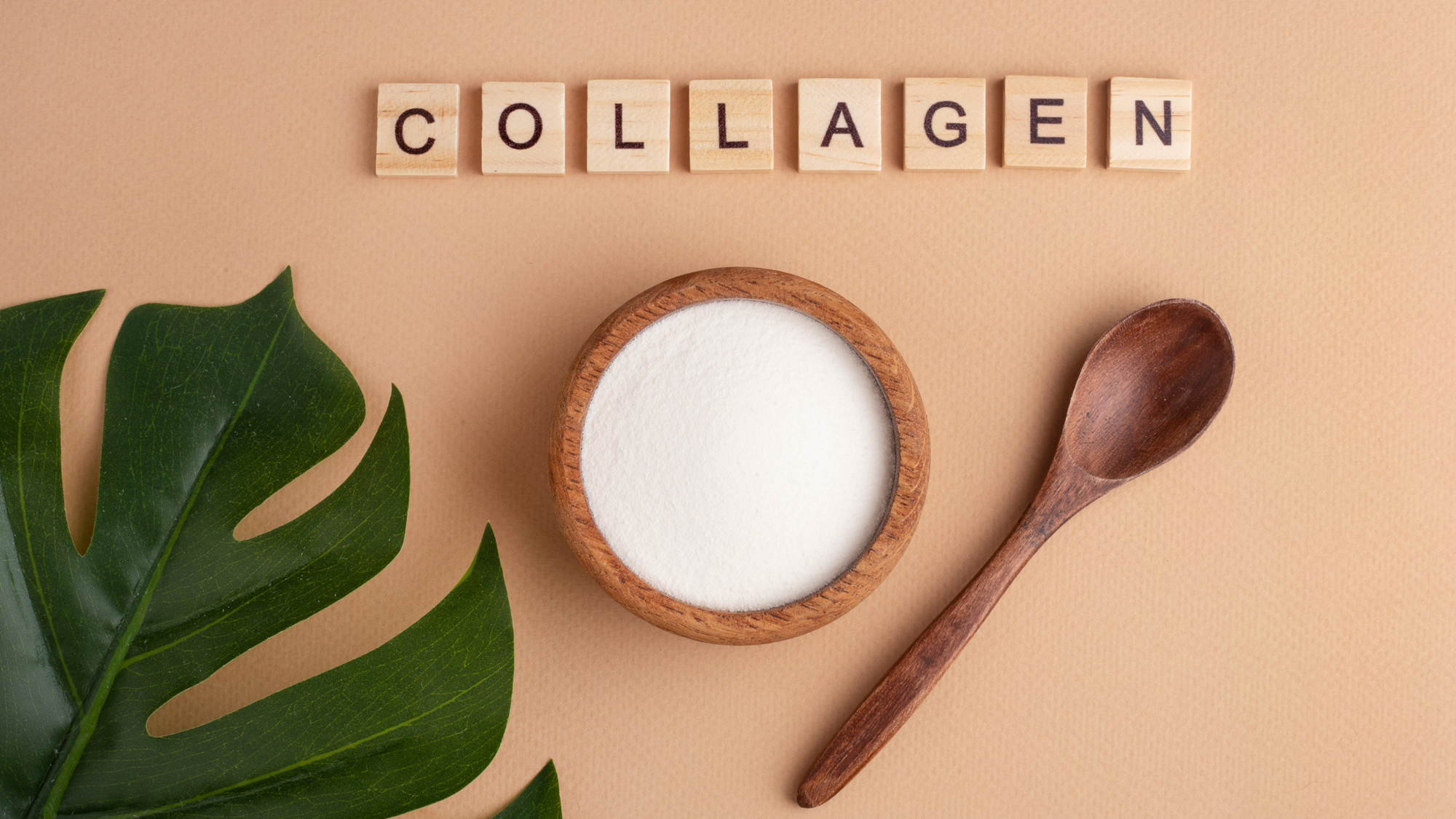
· By Sophie Strommen
Benefits Of Collagen Supplementation
What Is Collagen?
Collagen is the most abundant structural protein in our bodies. There are 28 known types of collagen, however there are 5 specific types that are most abundant in the human body - type I makes up 90% of the body's collagen. Dietary collagen is found in meat and fish, specifically cuts of meat that contain connective tissue. Our bodies produce collagen, however our collagen production decreases as we age, and environmental factors such as smoking and sun exposure can damage collagen fibres leading to wrinkles on the skin's surface.
What Are The Benefits Of Taking A Collagen Supplement?
Collagen is known as a beauty supplement, and is commonly used to promote healthy skin. As we age, our collagen levels are depleted, which reduces skin fullness and leads to wrinkles. One study found that supplementing collagen along with some other vitamins and minerals reduced visible signs of ageing by reducing the appearance of wrinkles. Participants of the study also experienced less skin dryness after supplementation.
Collagen is a structural protein and is important for our joints and ligaments. One study found that collagen supplementation of just 5g a day improved joint pain in young physically active adults. This is because collagen can not only help maintain healthy tendons and ligaments, but help repair them too! Collagen supplementation has also been found to improve osteoarthritis symptoms by reducing cartilage destruction and promoting cartilage repair.
Because collagen is a protein, supplementing it, especially in larger doses, can be beneficial in building muscle. It is considered an incomplete protein however, because it lacks tryptophan, and is also low in branched chain amino acids which are needed to build muscle. However, it still contributes to overall protein and amino acid intake, and can therefore contribute to muscle protein synthesis when included as part of a varied and balanced diet.
What Is The Difference Between Marine And Bovine Collagen?
Collagen supplements come in the form of marine and bovine - marine collagen is derived from fish, whereas bovine collagen is derived from cows. Both are excellent sources of collagen, however their amino acid profile and the types of collagen they contain are slightly different. Marine collagen is rich in collagen types I and II, and can be useful in improving cartilage and skin health. Bovine collagen is rich in collagen types I and III, and shares more of the same characteristics of human collagen molecules compared to fish, and also has a higher bioavailability.

How To Get More Collagen In Your Diet
The easiest way to get extra collagen in your diet is by taking a supplement, collagen supplements come in many forms, such as capsules, powder, or liquids. Our MOBU Bovine collagen comes in the form of a capsule for convenience!
Collagen is not present in plants (sorry vegans!), and dietary sources are limited to fatty meat and fish - bone broth and gelatine are particularly rich in collagen. Certain vitamins and minerals help with the synthesis of collagen in our bodies, for instance vitamin C and zinc, so it is important to get adequate amounts of these in your diet to promote the natural production and maintenance of collagen.